The first date that created a £10m company
- Published
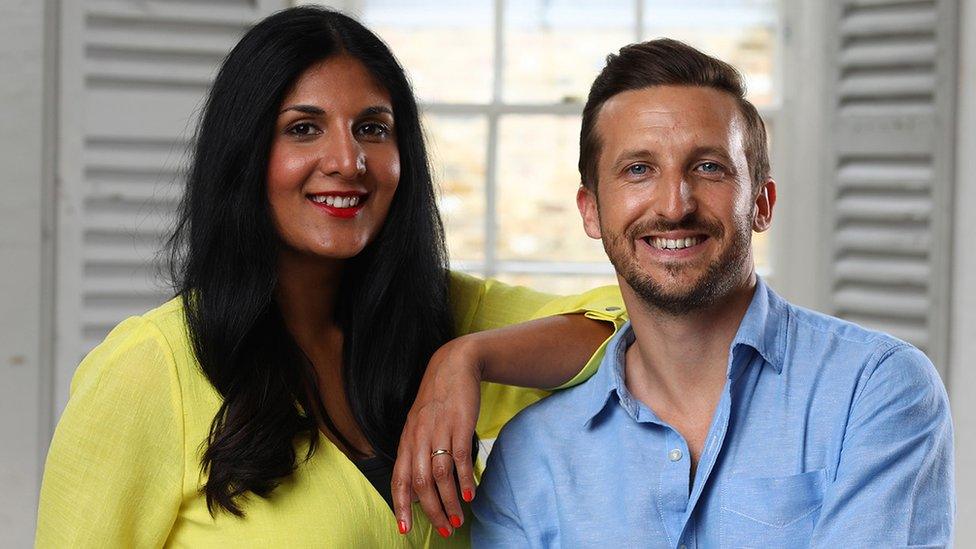
The couple met thanks to a dating website
The BBC's weekly The Boss series profiles different business leaders from around the world. This week we speak to Radha Vyas and Lee Thompson, founders of travel firm Flash Pack.
When Radha Vyas went on a first date with a man she had met online, little did she know that by the end of the night they would be starting to fall in love... and planning to go into business together.
Radha was 32 and single back in 2012, when a dating website matched her with a man called Lee Thompson because of their mutual love of travel.
Over drinks in a London bar she told Lee that she had noticed a gap in the market for a firm that offered group adventure holidays for single people in their 30s and 40s.
Her argument was that while 18 to 30-year-olds were well catered for by that type of organised trip, as were older generations, there was not much on offer for people in her age group.
Lee, who was 31, agreed, and they started to discuss the idea animatedly.
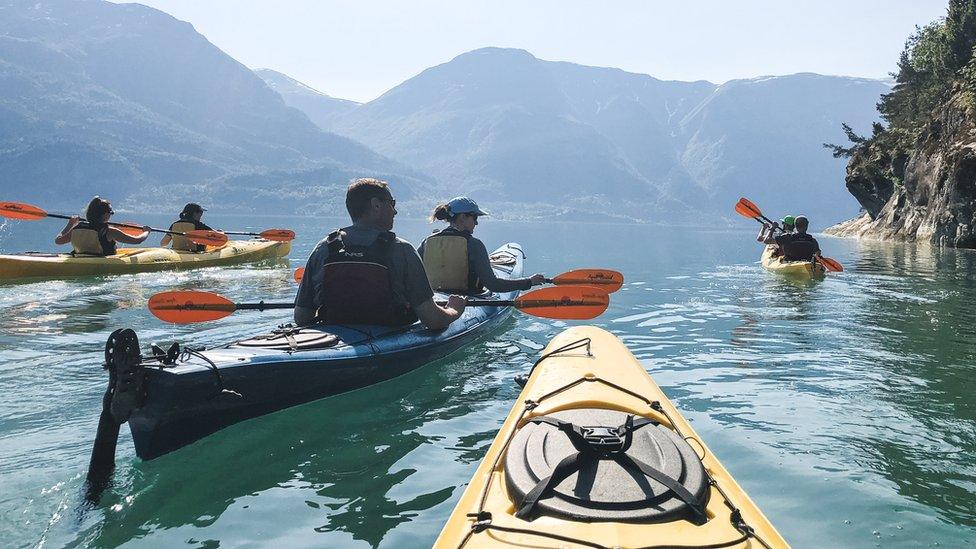
Their business, Flash Pack, currently organises holidays to 56 different destinations
"The more we spoke about the business idea, the more excitable we both got," says Radha. "And within weeks we weren't just a couple, but potential business partners too."
Fast-forward to today, and the now married couple are the founders and co-owners of Flash Pack, which takes more than 10,000 people in their 30s and 40s a year on group holidays to such destinations as Vietnam, Cambodia, Sri Lanka and Jordan.
Radha had come up with the idea for the business earlier in 2012 when she wanted to go on holiday, but all her friends "had settled down, or couldn't get time off work".
Deciding that she would go away on her own, she signed up for a group trip to Cambodia that was aimed far more at people in their late teens or 20s.
"Everyone was lovely, but because they were so much younger they weren't quite on my wavelength," she says.
"It got me thinking - why isn't there anyone doing this sort of a holiday for my age group?"
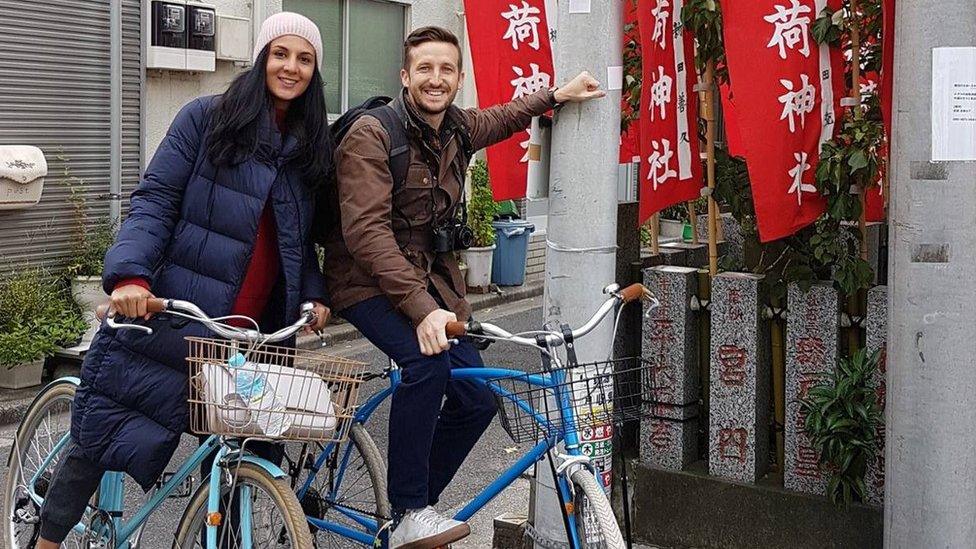
Radha and Lee admit that running a business with your partner can sometimes be difficult
As their relationship blossomed in the weeks after their first date, the couple started to research their travel business idea, and decided that it could indeed be successful.
While Radha continued with her day job in the fundraising sector, and Lee worked as a photo journalist, they then spent all their spare time getting their company up and running. They named it Flash Pack, as an abbreviation of "flash backpacking", and scraped together £15,000 to fund its launch.
But when their website opened for business on January 2014, with just one listing - an adventure holiday to Sierra Leone - success was not immediate.
"The first six months of the business was excruciating," says Radha. "You hear about all these overnight successes, but that really didn't happen with us.
"We sold one holiday to Sierra Leone, but then had to refund the person as we couldn't get anyone else on the trip."

More The Boss features:

Business at London-based Flash Pack was about to dramatically improve though, after Lee came up with a marketing idea that he hoped would go viral.
With the 2014 World Cup due to start in Brazil in June, he had an idea for a very specific photo.
"I'd seen a picture of some workmen at the very top of Christ the Redeemer, the iconic [mountain top] statue of Jesus, in Rio de Janeiro, and the views of the city looked amazing," says Lee.
"I knew if I could just get up there and take a selfie it would go viral."
So Lee convinced the Brazil Tourist Board to let him do just that, and he took his photo 738m (2,421ft) above the city.
Just as he had hoped, the photo did indeed go viral, with 50 million engagements on social media. It also led to him being interviewed by major news outlets around the world, and most importantly - drove a lot of traffic towards Flash Pack's website.
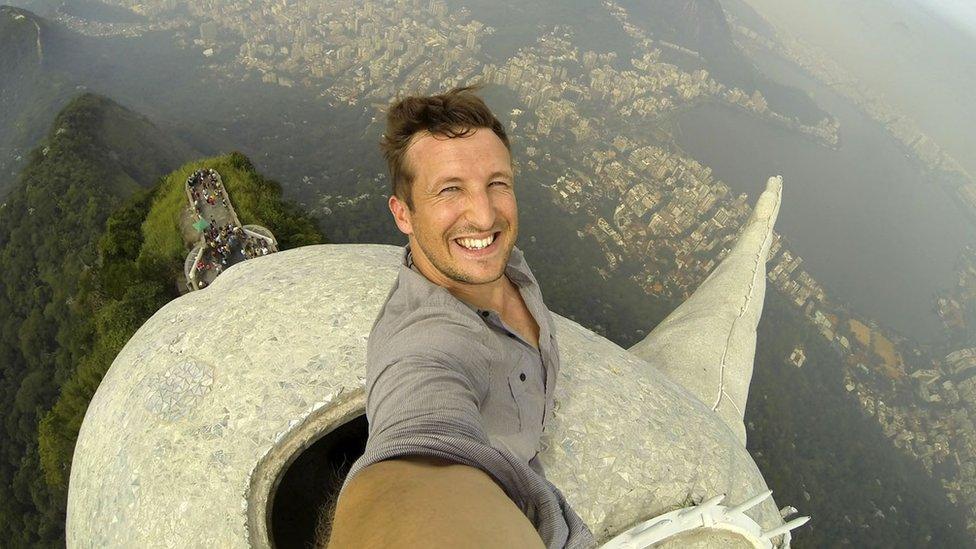
Lee's hunch that a selfie taken from the top of Rio de Janeiro's Christ the Redeemer statue would go viral proved correct
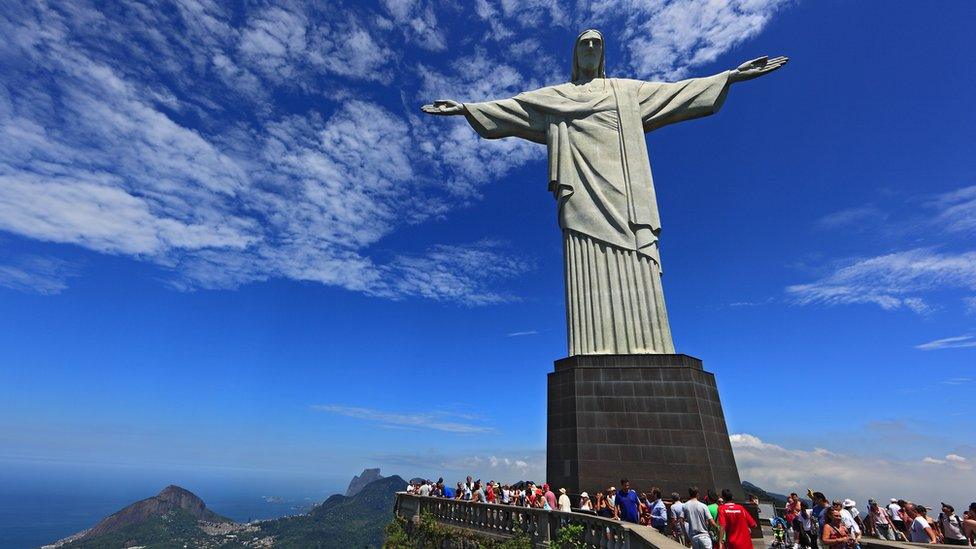
The statue is located on a mountain top high above the city
Before long the company was selling hundreds of holidays a month. The business has grown steadily since then, with claimed fourfold annual growth in recent years.
Today Flash Pack has an annual turnover of about £4m, and is valued at £10m., external And while the company now has some external investors, Radha and Lee hold a majority stake.
Joel Brandon-Bravo, a travel industry commentator and boss of deals website Travelzoo, says Flash Pack has successfully targeted a previously underserved market.
"Flash Pack is one of the few companies really catering for solo travellers in their 30s and 40s," he says. "It is directly targeting this audience by providing inspiring trip itineraries designed specifically for the cash-rich, time-poor traveller who wants to get out and see the world, but doesn't have time to plan every element of a trip for themselves.
"And with many bloggers and influencers travelling alone, this has helped show that solo travel is achievable and a positive thing to do."

A growing number of people in the 30s and 40s appear to want to go on group holidays
Radha and Lee both admit that starting a business with your partner can put a strain on your relationship, but say that ultimately it is a very positive thing.
"I couldn't imagine doing this on my own," says Lee. "Starting a company can be incredibly lonely, and to have someone to share the highs and lows with is amazing."
When the business started Radha and Lee used to muck in and share roles. Today Radha is the chief executive, while Lee - who describes himself as "chief buzz maker" - focuses on PR and building the brand.
As to the future, the company plans to open an office in North America, as it now gets more than half of its customers from the US and Canada. It also wants to continue to expand the number of its holiday destinations.
"Not many people are talking to this demographic (30 and 40-somethings), so we really have found that gap in the market," says Radha.